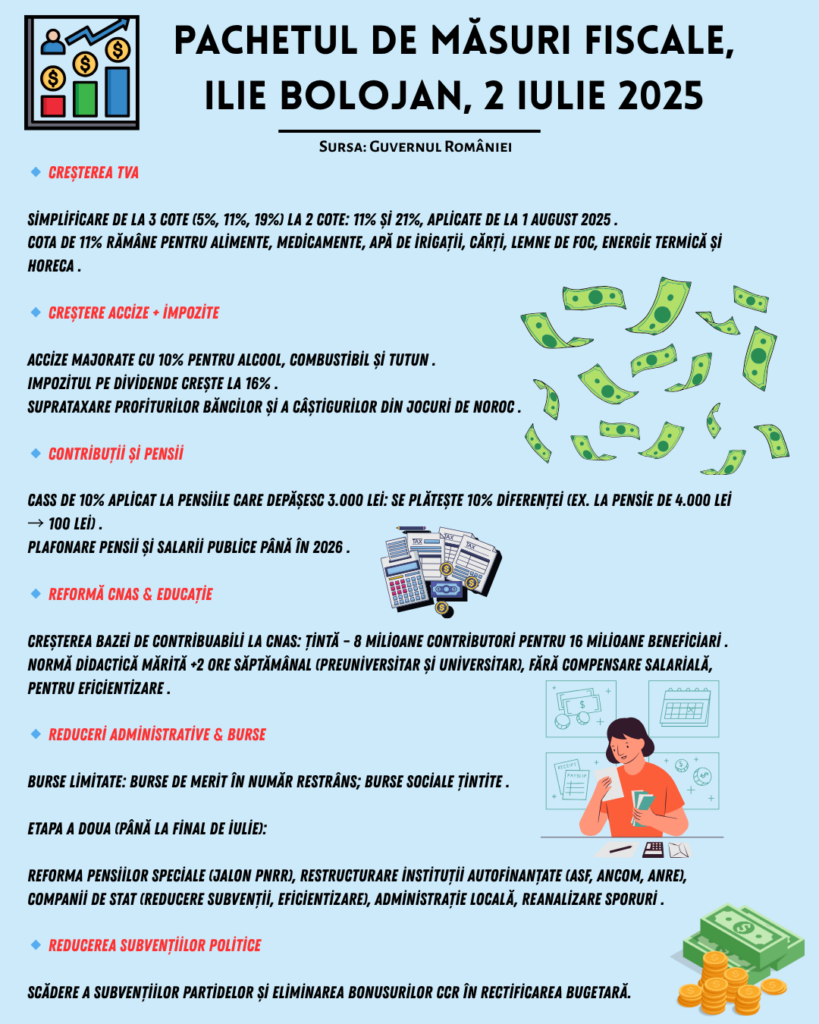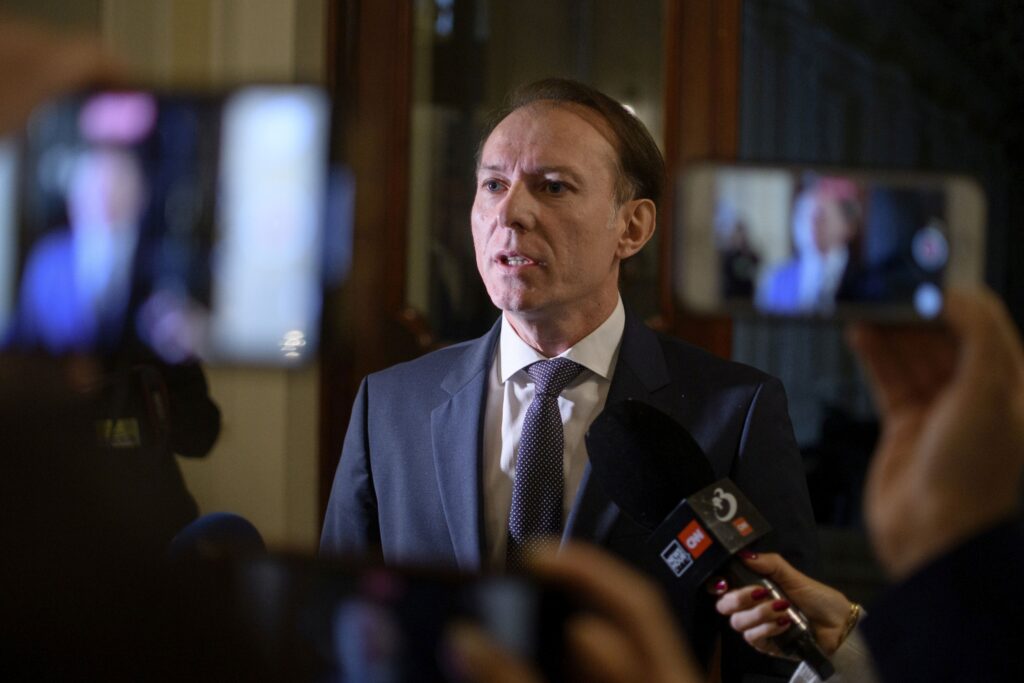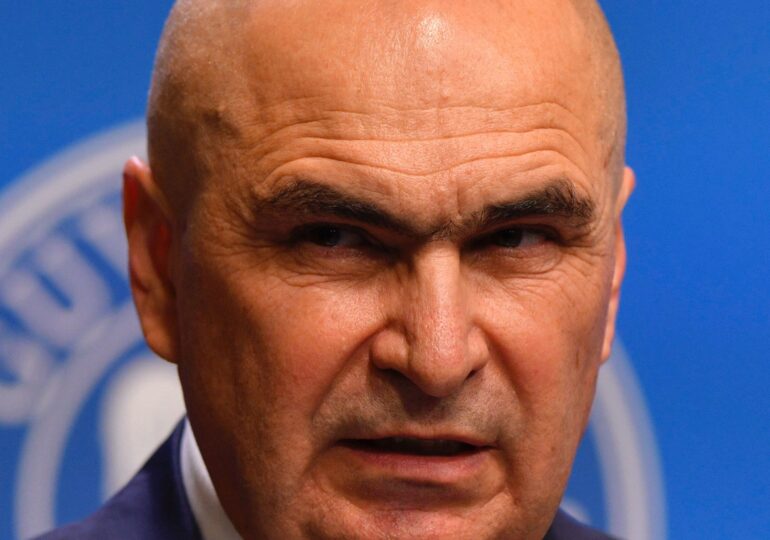President Nicușor Dan did not react to the measures announced by Ilie Bolojan for reducing the deficit. From the position he had during the electoral campaign and subsequent negotiations, it is known that the head of state did not support the idea of increasing VAT.
There were different views between the two on how the 7 percent of GDP target for 2025 could be achieved.
Ilie Bolojan was very close to resigning as prime minister due to disagreements with Nicușor Dan on the issue of raising VAT.
"At the installation of this government, the President rightfully asked us to do everything possible to not increase VAT and to focus mainly on expense reductions, investment optimizations, and these will be done in such a way as to not impose any additional burden on Romanians," said Prime Minister Ilie Bolojan from the Victoria Palace.

Differences from previous crises
But the announced measures have been criticized by former prime ministers, as well as by political experts and analysts, who argue that they will lead to price increases, inflation, and a decrease in economic competitiveness with the main consequence being a possible entry into recession.
Additionally, on social media, several commentators have drawn comparisons with the moment in 2010 when Traian Băsescu, the president at that time, announced a 25% cut in salaries for public sector employees or with the measures taken by Prime Minister Radu Vasile following the 1999 economic crisis.
The crisis we are currently experiencing fundamentally differs from previous ones. Compared to the one in 1999, Romania was not part of NATO or the European Union at that time, still being affected by the burden of the centralized, communist economy.
Who actually benefits from the panic induced among the Romanian population and businesses? I paid the political price for my mistakes. I took a step back, convinced that after an overly extended super-electoral year, Romania needs new leaders. Decision-makers who, loaded with energy and credibility, can continue the country's development trajectory.
However, I have increasingly heard harsh accusations and alarmist theories in recent times about the so-called economic disaster I left Romania in. Some see fit to file ridiculous criminal complaints against me, without realizing that budget executions are public and anyone can easily verify how the money was spent. But if I have to go to jail to finally have the Moldova Highway after 30 years, then I accept it without regrets.
Marcel Ciolacu, former Prime Minister of Romania, post on his Facebook page
In 2010, our country was hit by the global economic collapse caused by the US credit crisis, which had strong repercussions in Europe.
The measures taken back then were implemented because the state could no longer finance itself.
Today, despite the war in Ukraine and tensions in the Middle East, we are not facing an international economic crisis, unemployment is low, and technological innovation, a process that increases company productivity and creates new jobs, has not slowed down. Not yet.

On the other hand, today's Romania no longer has any connection to the one in 1999, NATO and the European Union membership provide access to funds, with the only issue being ensuring economic efficiency.
Everyone is dissatisfied
"...cutting budget expenses could be a right-wing measure. But not when it comes with tax increases. And not when it is temporary, done just for the eyes of rating agencies. Sustainable expense reduction only comes through real reforms. Meaning by changing legislation, reducing the state apparatus, administrative simplification. Not through short-term accounting cuts, followed by new gifts in December. And the signals from the Government are clear: the reforms are postponed, even though they come with funds through the PNRR..." wrote Florin Cîțu (PNL), former Prime Minister, on his Facebook page, commenting on the measures outlined by Ilie Bolojan.
Cîțu's dissatisfaction stems from the fact that the tax hikes are made only to prevent Romania from being downgraded by financial rating agencies, with the accusation that they lack consistency and will not be followed by a real state reform.

Three objectives
Through the announced measures, Ilie Bolojan has made the most significant political bet of his entire career. If he manages to avoid the country's credit rating downgrade, balance the balance of payments, and avoid recession, he will be the big winner. He gains the authority and political support for reforming the state without causing major social tensions.
For example, he could more easily target the diversion of funds through political networks, reduce corruption, and streamline state agencies and public companies.
He will also have leeway to negotiate with union leaders for some bonuses to be converted into salaries and thus eliminate dozens of benefits, justified or not, for public sector employees.
In a TV show, Adrian Codirlașu, financial expert, spoke about a real possibility that the measures taken by Prime Minister Ilie Bolojan could push Romania into an economic recession, meaning a decrease in GDP (Gross Domestic Product) for two consecutive quarters, six months.
Recession, in addition to its impact on the financial and economic system, comes with a strong emotional burden. The memory of the global crisis and the problems of that time will generate fear among people, and the current government will be in jeopardy.
Bolojan's bet is even more complicated as he has no support from the Cotroceni Palace. The paths of the two diverged during the long negotiations, and the agenda of the head of state will increasingly differ from that of the current prime minister.
To win the complex bet, Bolojan must achieve three things: ensure that Romania is not downgraded by rating agencies, reach an agreement with unions to ease social tensions, promising negotiations after budget rebalancing, and avoid the country slipping into recession.

